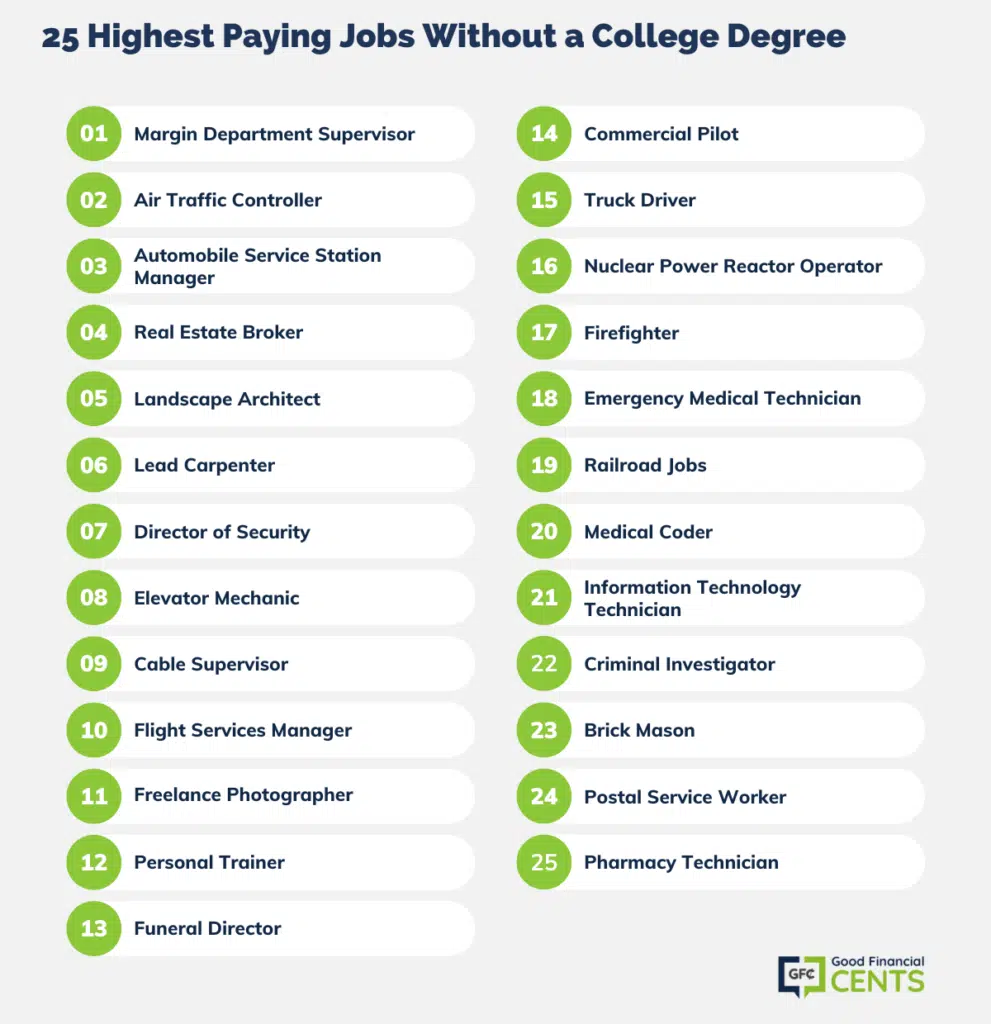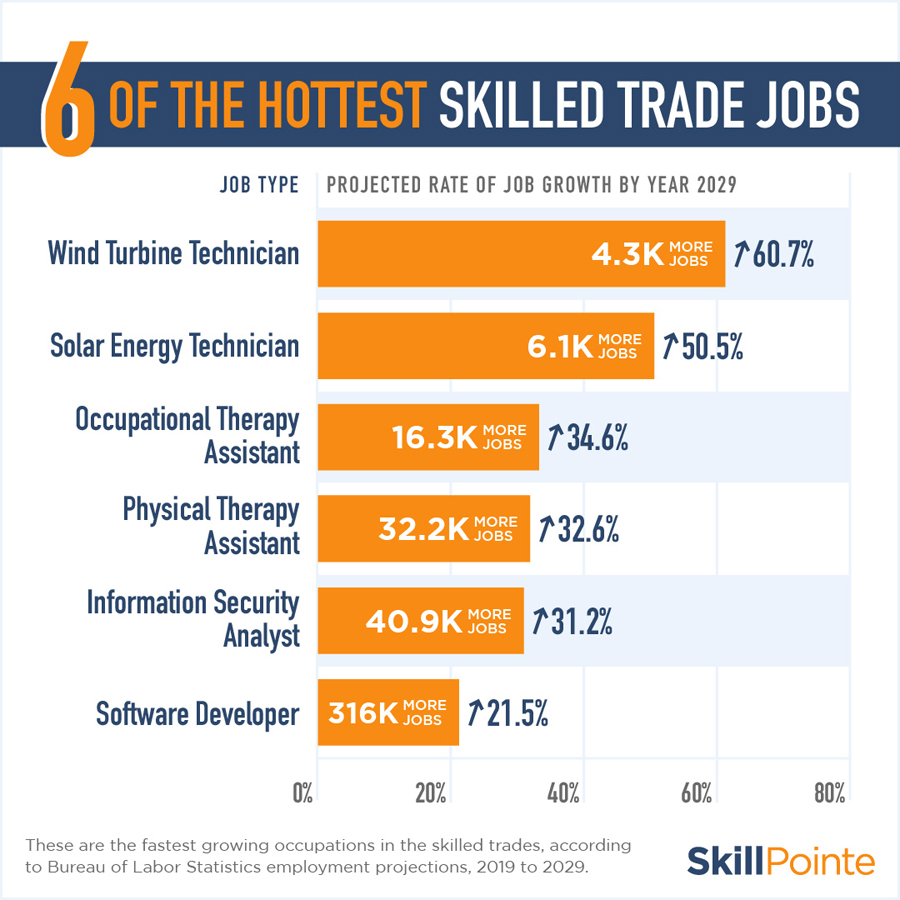In a world where a university degree has long been touted as the golden ticket to success, a growing number of Gen Zers are charting a different course.
Driven by a combination of financial pragmatism and a desire for hands-on learning, these young individuals are shunning the conventional path of higher education and instead picking up the tools of traditional trades.

At the tender age of 12, Todd Lucioni started mowing his neighbors’ lawns for $35 a pop.
What began as a humble side hustle blossomed into a full-fledged landscaping business, generating over $1 million in revenue last year.
Now 23, Lucioni is part of a burgeoning cohort of Gen Zers who are opting out of college and embracing the skilled trades as a means to financial stability and personal fulfillment.
The Financial Realities: Avoiding the Debt Trap

For many young people, the decision to forgo college is rooted in cold, hard financial realities.
The soaring costs of university education, coupled with the prospect of mounting student loan debt, have cast a long shadow over the once-coveted college experience.
“It’s simple math,” Lucioni explains. “Let’s say you pay $50,000 a year for college. Times that by four, that’s $200,000 for your investment.
Plus, you’re losing four years of revenue-producing years by going to college, so you’re spending money and not making money.”
Indeed, the statistics paint a sobering picture.
With some colleges charging upwards of $95,000 per year, the financial burden of a traditional four-year degree can easily surpass the $200,000 mark – a staggering sum for most young people to shoulder.

The burden of this financial decision often looms large, causing young adults to reconsider whether the traditional path of higher education is truly worth the investment.
Moreover, the average student loan debt for a bachelor’s degree recipient hovers around $30,000, a burden that can hinder financial progress for years to come.

In contrast, the earnings potential in the trades can be alluring.
According to data from payroll services provider ADP, the median pay for new professional services hires is just shy of $40,000, while the average new starter in construction can expect to take home over $48,000 – a significant difference for those just starting out.
Changing Societal Perspectives: Rebranding the Trades
Beyond the financial incentives, Gen Zers are also challenging long-held societal perceptions about blue-collar work and the skilled trades.

The narrative around trades has evolved significantly, shifting from a last resort to a viable and respected career choice.
Fueled by social media’s influence, these once-stigmatized professions are undergoing a renaissance, with young people increasingly viewing them as lucrative and personally fulfilling career paths.

“There definitely was a taboo against people who went into trades,” says Luke Phillips, a 20-year-old apprentice at The Remarkable Goldsmiths in Dartmouth.
“But those preconceptions are long gone. These days, young people are leaning towards feeling envious of those getting their hands dirty, realizing it’s a path to both solid earnings and the freedom of being your own boss.”

This shift is reflected in increasing enrollments in trade schools and apprenticeships, as more young people recognize the potential for a lucrative and rewarding career.
Social media platforms like TikTok and Instagram have played a pivotal role in rebranding the trades, showcasing the artistry, skill, and financial rewards associated with professions like carpentry, plumbing, and electrical work.
Successful tradespeople and businesses have leveraged these platforms to inspire and attract a new generation of talent, offering a glimpse into the potential for personal and financial growth.
Hands-On Learning and Entrepreneurial Spirit
For many Gen Zers, the allure of the trades lies in the opportunity to learn through hands-on experience, rather than predominantly theoretical classroom education.

This practical approach resonates with a generation that values tangible skills and the ability to see the direct impact of their efforts.
It is reshaping educational models, with more institutions offering trade programs that combine classroom instruction with on-the-job training.
“I’m getting a really good understanding of how to run a business and what being in a workshop is actually like,” Phillips remarks. “Not what tutors think it might be like, or what it was like 10 years ago.”
This desire for experiential learning is coupled with an entrepreneurial spirit that permeates Gen Z.
Many young tradies aspire to become their own bosses, leveraging their skills to build successful businesses and achieve financial independence.
Lucioni’s journey exemplifies this mindset. From a humble lawn-mowing gig to a thriving landscaping company with nine employees, he has embraced the freedom and control that comes with entrepreneurship in the trades.

“You can still be a 1% income earner here in America and be a trades business owner,” he asserts, defying the notion that success is exclusively tied to a college degree.
Breaking Stereotypes: Women in the Trades

Traditionally male-dominated, the skilled trades are also witnessing a shift in gender dynamics as more women like Emily Shaw, a 20-year-old apprentice at British construction company Redrow, embrace these careers.
:max_bytes(150000):strip_icc()/GettyImages-1209681524-1fe805ac87ca4fed9e57a20f020733cb.jpg)
“There is more to construction than just bricklaying – there are so many opportunities for women to succeed, do well and make a difference to communities,” Shaw explains. “In fact, the majority of the office I work in is made up of women.”
Today’s young tradespeople are proud of their skills and the tangible results of their labor, finding fulfillment in their work that many office jobs fail to provide.
Redrow’s research found that 39% of young women working in the construction industry were enticed by the high salary potential, while a quarter were drawn in by the possibility of becoming their own business owners.
Initiatives to promote diversity and break down stereotypes are helping to dismantle barriers and create a more inclusive environment for women in the trades.
Challenges and Drawbacks

While the allure of the trades is undeniable for many Gen Zers, it’s essential to acknowledge the potential challenges and drawbacks.
The physicality of many trade professions can take a toll on the body over time, and the lack of formal credentials could limit certain opportunities for advancement or career pivots.

Moreover, the trades require continuous upskilling and adaptation to stay relevant in an ever-evolving job market.
As technology and innovation reshape industries, tradespeople must be prepared to embrace new techniques, materials, and processes to remain competitive.
Proponents of traditional higher education also argue that a well-rounded college experience fosters critical thinking, communication skills, and a broader perspective – attributes that can be valuable in any career path.
Additionally, certain professions, such as medicine, law, and academia, still heavily favor – or outright require – advanced degrees.
Looking Ahead: A Paradigm Shift or a Temporary Blip?

As Gen Zers continue to reshape the narrative around career choices, the question remains: Is this trend towards trades a permanent paradigm shift or a temporary blip?
The long-term effects of this shift will likely influence educational policies, workforce development programs, and economic strategies on a global scale.
The implications could be far-reaching, impacting everything from university enrollment and workforce dynamics to the education system itself.
This shift could lead to a reevaluation of the value placed on different types of education and training, promoting a more diverse and inclusive view of career success.
Some experts argue that the current surge in trades is a byproduct of the unique economic and societal pressures faced by Gen Z, and that the allure of a college degree may resurface as conditions change.
Others, however, believe that this generation’s pragmatic approach to career planning and financial responsibility signifies a more enduring transformation.
Regardless of the long-term trajectory, one thing is clear: Gen Z is unafraid to forge its own path, challenging conventional wisdom and making decisions based on personal values, financial realities, and a desire for fulfillment – both personal and professional.
As Tobba Vigfusdottir, a psychologist and CEO of employee mental health platform Kara Connect, notes, “Gen Z is possibly the most educated generation in history. They’re also more worried about their finances than previous generations, having seen a few financial crises on their way to the workplace.”
In a world that has often equated success with a university pedigree, Gen Z is rewriting the rules, embracing alternative paths that prioritize financial stability, hands-on learning, and personal agency.
Whether this trend endures or evolves, one thing is certain: the future of work and education is being shaped by a generation unafraid to challenge the status quo and chart its own course.

